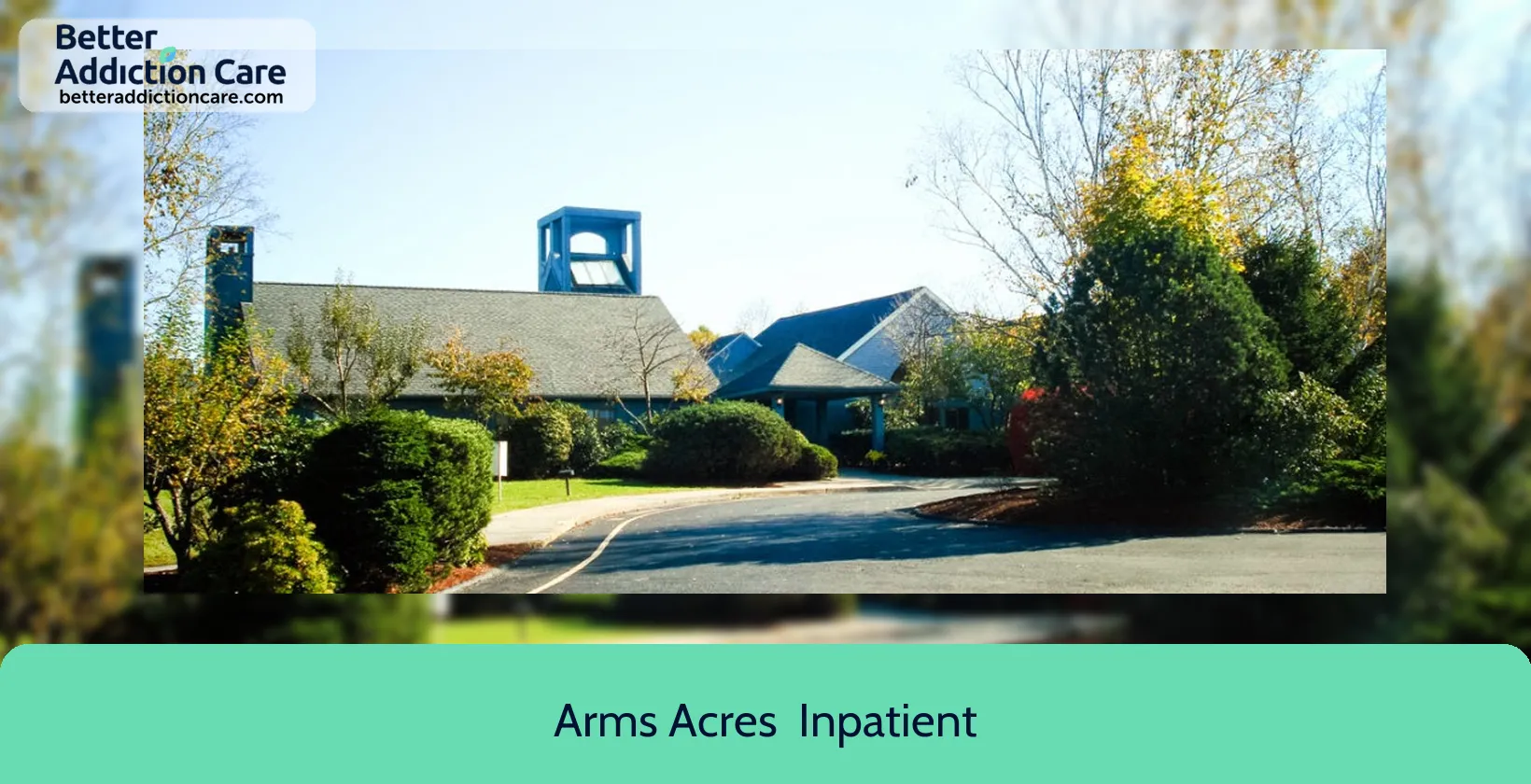Arms Acres - Inpatient
Overview
Arms Acres is a distinguished private alcohol and drug rehabilitation facility located in Carmel Hamlet, New York. Their comprehensive programs cater to adolescents and adults, offering essential services such as medical detoxification, gender-specific inpatient treatment, and robust aftercare support. Specialized services are available for young adults, veterans and military personnel, as well as individuals with co-occurring addictions and mental health conditions.
The medical detoxification program at Arms Acres ensures clients safely withdraw from substances like opioids and alcohol under meticulous medical supervision and clinical care. A dedicated multidisciplinary team oversees each client's detox journey, focusing on enhancing comfort, managing cravings, and averting potential complications. Services provided during detoxification include thorough medical evaluations, psychiatric assessments, individual and group therapy sessions, and educational lectures aimed at promoting understanding and recovery.
Following detoxification, clients at Arms Acres have the opportunity to transition into the facility’s distinguished inpatient treatment program. This program emphasizes a client-centered approach and incorporates evidence-based therapeutic modalities such as cognitive behavioral therapy (CBT), rational emotive behavioral therapy (REBT), motivational interviewing, and trauma-informed therapy. Arms Acres features separate units for men and women, allowing individuals to focus on their unique recovery needs, with a coed unit also available.
Throughout their stay, clients engage in a variety of therapeutic activities designed to enhance their physical health and mental well-being. These activities include closed discussion groups, recreational pursuits, fitness classes, 12 Step meetings, yoga sessions, equine therapy, and swimming. Each component is carefully integrated to support holistic recovery and personal growth.
Arms Acres further supports clients' long-term recovery with individualized aftercare referrals, facilitating connections to community-based providers who offer ongoing support beyond the residential treatment setting.
Arms Acres - Inpatient at a Glance
Payment Options
- Cash or self-payment
- Medicaid
- Private health insurance
Assessments
- Screening for tobacco use
- Comprehensive mental health assessment
- Comprehensive substance use assessment
- Interim services for clients
- Outreach to persons in the community
Age Groups
- Seniors or older adults
- Young adults
- Adults
- Seniors
Ancillary Services
- Case management service
- Early intervention for HIV
- Mental health services
- Social skills development
- Transportation assistance
Highlights About Arms Acres - Inpatient
7.63/10
With an overall rating of 7.63/10, this facility has following balanced range of services. Alcohol Rehabilitation: 8.00/10, Drug Rehab and Detox: 9.08/10, Insurance and Payments: 6.00/10, Treatment Options: 7.46/10.-
Drug Rehab and Detox 9.08
-
Alcohol Rehabilitation 8.00
-
Treatment Options 7.46
-
Insurance and Payments 6.00
Accreditations
The Joint Commission:

The Joint Commission, previously known as JCAHO, is a nonprofit organization that accredits rehabilitation organizations and programs. Established in 1951, its mission is to enhance the quality of patient care and showcase excellence in healthcare delivery.
Treatment At Arms Acres - Inpatient
Treatment Conditions
- Mental health treatment
- Alcoholism
- Substance use treatment
- Co-occurring Disorders
- Opioid Treatement
Care Levels
- Hospital inpatient treatment
- Short-term residential
- Residential detoxification
- Aftercare
Treatment Modalities
- Cognitive behavioral therapy
- Telemedicine/telehealth therapy
- Substance use disorder counseling
- Trauma-related counseling
- Smoking/vaping/tobacco cessation counseling
Ancillary Services
Languages
- Sign language services for the deaf and hard of hearing
- Spanish
- Other languages (excluding Spanish)
- Russian
Additional Services
- Pharmacotherapies administered during treatment
- Mentoring/peer support
- Breathalyzer or blood alcohol testing
Special Programs
- Clients with co-occurring mental and substance use disorders
- Veterans
- Criminal justice (other than DUI/DWI)/Forensic clients
- Pregnant/postpartum women
- Clients with HIV or AIDS
Get Help Now
Common Questions About Arms Acres - Inpatient
Contact Information
Other Facilities in Carmel

7.18

6.68
DISCLAIMER: The facility name, logo and brand are the property and registered trademarks of CoveCare Center - PROS Program, and are being used for identification and informational purposes only. Use of these names, logos and brands shall not imply endorsement. BetterAddictionCare.com is not affiliated with or sponsored by CoveCare Center - PROS Program.

